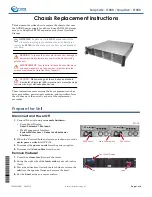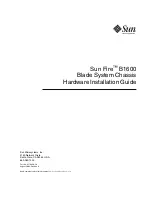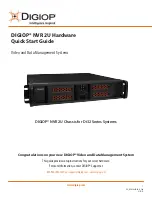
Figure 15. Chassis Settings in MAX
Trigger Configuration in MAX
PXI Platform Services provides an interface to route and reserve triggers so dynamic routing,
through drivers such as DAQmx, avoids double-driving and potentially damaging trigger lines.
For more information about routing and reserving PXI triggers, refer to KnowledgeBase
3TJDOND8
at
ni.com/support
.
Each chassis has one or more trigger buses, each with eight lines numbered 0 through 7 that
can be reserved and routed statically or dynamically. Static reservation
pre-allocates
a trigger
line to prevent its configuration by a user program. Dynamic reservation/routing/deallocation
is
on the fly
within a user program based on National Instruments APIs such as NI-DAQmx.
NI recommends dynamic reservations and routing are used whenever possible. If static
reservations are required, static reservation of trigger lines can be implemented by the user in
MAX through the
Triggers
tab. PXI modules dynamically configured by programs such as
NI-DAQmx will not use reserved trigger lines. This prevents the instruments from double-
driving the trigger lines, possibly damaging devices in the chassis. In the default configuration,
trigger lines on each bus are independent. For example, if trigger line 3 is asserted on trigger
bus 0, by default it is not asserted automatically on any other trigger bus.
26
|
ni.com
|
PXIe-1092 User Guide








































